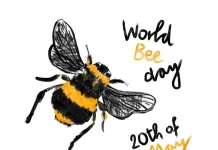 Dr. Bhaskar Chatterjee, Director General & CEO of the Indian Institute of Corporate Affairs, is spearheading India’s movement to make businesses more responsible by aligning them with civil society goals. In his address at the 10th national convention on ‘Sustainable Transformation for India,’ organized by the UN Global Compact, in Bangalore recently, he spoke of the challenges and opportunities ahead and what’s being done to address them. Edited excerpts:
Dr. Bhaskar Chatterjee, Director General & CEO of the Indian Institute of Corporate Affairs, is spearheading India’s movement to make businesses more responsible by aligning them with civil society goals. In his address at the 10th national convention on ‘Sustainable Transformation for India,’ organized by the UN Global Compact, in Bangalore recently, he spoke of the challenges and opportunities ahead and what’s being done to address them. Edited excerpts:
The Global Compact Network India is ten years old. The UN Global Compact is itself is in its 15th year. I think it’s the right time to pause and ask ourselves what have we been doing, what do we now need to do. This is the time to take stock, realign ourselves and realign our vision. We have seen this happening in the premier body of the UN itself. When the Millennium Development Goals were set up they were done with this wonderful view that there are 15 years to go and certainly these would be universal principals for the world to follow.
Many countries which are behind in these stages of development will perhaps get there in 2015. When the UN takes stalk today what does it see? Sadly, unfortunately, almost unbelievably, all the countries that needed to measure up to the MDGs have pretty much miserably failed.
Were the goals set wrongly? Was the performance not good enough? Should the year have been 2015 or 2020? Questions that the world body is asking itself, they realize that if the rules of the game did not work, then, change the game or change the rules or change the players.
You also need to move on because the world thinking has changed. It’s not so much about just the green part, not just about the environment part but the social development matrix that surrounds the environment part is now the larger focus. One must go hand in hand with the other.
Look at the way business has changed. If you look at the time when a very prominent economist said in the early 90s the business of business is business. What did he mean? The business of business is to make money, full stop. His thought was right at that time because the board of directors was there to satisfy its shareholders. But between by the late 90s the reference has moved from shareholders to stakeholders.
The whole perspective has changed when the father of Triple P, John Elkington wrote his famous book Cannibals with Forks – The Business Agenda of the 21st Century. He put forward the Prahaladian (C K Prahalad) dictum that a successful business cannot survive in a failed society.
Should businesses change just their strategy to look at the new world or should the business itself transform? The core of business needs to change to accommodate the new world, to accommodate the new thinking, to accommodate that which the Global Compact is working now with the UN, to see the world with a different set of glasses. How do we do that?
Sustainability & CSR are the Same
In the last 3-4 years when the CSR legislation was being propelled by the Indian Parliament were people said sustainability is the right thing, CSR is the wrong thing or vice versa. The fact is, it’s not CSR or sustainability, it is CSR and sustainability; one envelopes the other.
These are not even synergistic because they don’t need to be; they are one and the same. That’s exactly what Section 135 tells you in the New Companies Act. There is a confluence of these two streams which says companies need not choose between one and the other. In complying with the provisions of Section 135 you can achieve all the sustainability objectives that you ever wanted to achieve. Now since there is a guided road map it is easy for corporates to follow.
There is optimism in the air. We need to ask ourselves though that if sustainability and CSR are themselves to become sustainable, then what are the things that this country, our civil society organizations and corporate world need to do.
Who is a CSR Professional?
We have marketing, advertising, HR and finance professionals, why aren’t there CSR or sustainability professionals? So, the IICA (Indian Institute of Corporate Affairs) started the very first professional program in CSR sustainability. It’s a nine-month online course.
When corporates say that we do sustainable development or CSR how do they do it? They were not created for CSR or sustainable development. They were created to do business. We have a whole civil society sector that actually relates to communities, that works on the ground, that derives its livelihood from doing work among the downtrodden, the less privileged, the marginalized and that’s why this particular piece of legislation tries to bring synergy between the corporate world and the civil society sector, tries to bridge the trust deficit between them.
If CSR or sustainable development or sustainable transformation is to work in India companies can fund, monitor, evaluate, they can bring their business genius, get skills, get better bang for their buck but at end of the day, the foot soldiers on the ground are not corporate entities, they are civil society people who work with communities.
The whole concept of CSR is to allow civil society its real part in the domain of social development. What does that mean? Trust deficit to go but also that civil society must be able to step up and say if this is our big chance are we equipped to deal with it.
Are we ourselves professionalizing? Can we meet the challenge that the corporate sector, the government and the legislation have thrown before us? Over decades we have hoped that this opportunity will come, our dependence on only government funds must go, now that opportunity has come. If you do not shape up you will need to ship out and if you ship out the ship of CSR will sink. So, as much as we talk about corporate doing their thing an equal if not a greater responsibility lies with civil society to deliver the goods.
First List of ‘Reliable’ NGOs
Corporates ask: where do we find these NGOs, reliable civil society organizations? Some of them say: we don’t know if they are professionalized, and, in a way, they might not be wrong. So who does the due diligence?
IICA has now put up a list of 80 civil society organizations after due diligence. Here again, the government has taken the leadership. It has taken us almost six months to develop a database of only eighty.
We are also doing training of NGOs. When I say civil society must step up it can’t be a magic wand. How do they step up? Where do civil society organizations left out on the fringes of development find space in which to develop their managerial skills. That onus too is been taken up by IICA. When the Corporate Affairs Ministry talks about getting this job done we mean business.










